The Ottawa Senators are trying to pull off the perfect offseason while performing a delicate balancing act — and so far, so good.
Being in the midst of a total rebuild is a difficult position to be in, but if you navigate it correctly, you can build a sustainable competitive team. The Senators are at a critical juncture in their development that will determine whether their upward trajectory continues or stalls.
An extended period of losing can be detrimental to players and weigh heavily on the fanbase, management and ownership. But cashing in assets too early, before a team’s young players are ready to propel the team to contender status, can set a franchise back years and even start the rebuilding process over again.
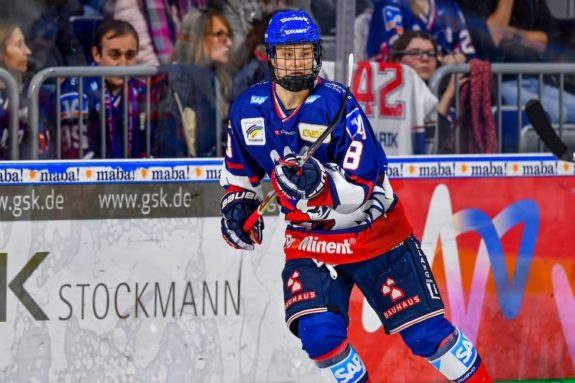
Ottawa has managed to thread the needle between competing now and improving for the future. Their recent moves have set them up for immediate improvement, with the ability to pivot back to a developmental focus if they’re not in playoff contention ahead of the trade deadline.
An Offseason of Aggression
While the World Junior Championships took center stage and most of us digested our goodies and slept off holiday celebrations, Senators general manager Pierre Dorion got to work.
In a three-day flurry of activity that kicked off on Boxing Day, Ottawa:
- Traded a second round pick for Derek Stepan
- Replaced that pick in a swap with the Tampa Bay Lightning that brought back two NHL-caliber players with championship experience
- Signed first round picks Tim Stuetzle and Ridly Greig to three-year, entry-level contracts
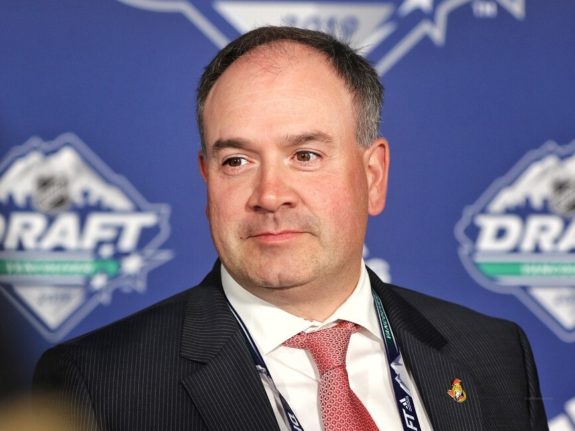
Add that to their multitude of prior transactions, and this year’s team is going to look a lot different. They should be much better than public perception indicates; the only team with lower playoff odds is Detroit. And while even I’m guilty of thinking the team should focus on their talented youth, Ottawa can likely play both sides of the fence in this unique season.
A Push for the Playoffs
So, it probably won’t happen… but it’s not impossible, and that’s a victory in itself. There are plenty of unparalleled factors in play that could nudge Ottawa’s odds in a positive direction.
Depth should be more important than ever with the possibility of positive COVID-19 cases sidelining multiple players for extended periods of time. That reality is all too familiar for Tim Stuetzle and his WJC teammates; Germany had to quarantine nine members of the roster, allowing them to dress just 14 players in their first two games.
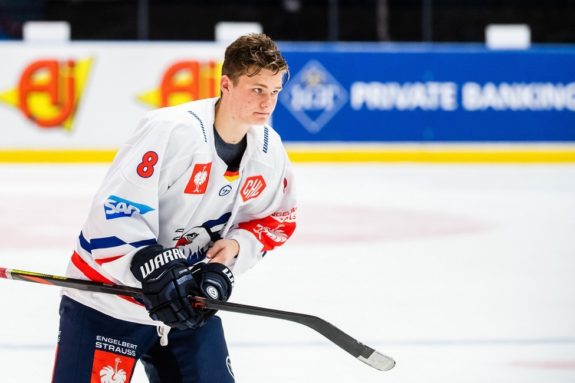
Two bad weeks can ruin your playoff chances in a shortened season. Ottawa is suddenly teeming with reliable veterans after building one of the best young cores in the league, and their depth could prove crucial if any players test positive for the coronavirus.
Just how much better should this year’s version be? The numbers point to a drastic improvement. There’s no guarantee their additions will perform up to expectations or produce at the same rate as seasons past; some of these players will assume different roles while adapting to new teammates.
But the improvement of Ottawa’s young players should offset any decline from the veterans, and the raw numbers are promising when analyzing the team’s roster turnover since the offseason began.
| Additions | Subtractions | Difference | |
| Players | 8 | 8 | 0 |
| Goals | 68 | 42 | +26 |
| Assists | 90 | 56 | +34 |
| Points | 158 | 98 | +60 |
| Hits | 682 | 518 | +164 |
| Blocks | 340 | 311 | +29 |
That doesn’t account for the addition of Matt Murray, whom Ottawa hopes can seize the starter’s role and bring stability to the crease, or the players they drafted and prospects that have outgrown the farm team.
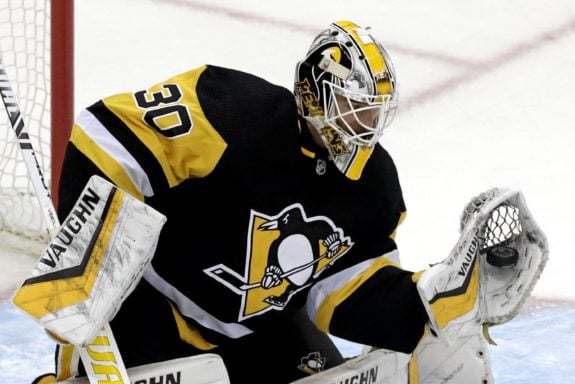
Ottawa’s 56-game schedule is crammed into 114 days with ten back-to-backs, which equates to a game every two days. The normal 82-game slate takes place over roughly 186 days, or one game every 2.27 nights. That might not seem like a big difference, but that reduces rest time by more than ten percent; playing two extra games per month will inevitably lead to more fatigue, and potentially, more injuries.
The North Division — comprised of every Canadian franchise — brings another twist. The Senators will face each of the other six teams either nine or ten times, often in mini-series with up to four consecutive matchups. This increased familiarity will make game-planning and coaching adjustments even more important, providing management with an opportunity to further evaluate whether head coach D.J. Smith can lead this team to the next level.
Plan B
Although Ottawa should be greatly improved, they still might find themselves on the outside of the playoff picture. The strength of the North Division is a big reason why — they fared much better against teams they will not face this season than they did against their scheduled opponents.
| Opponents (2019-20) | Record | Points Percentage |
| All | 25-34-12 | .437 |
| North Division | 4-7-3 | .393 |
| Atlantic Division | 9-9-5 | .500 |
| East, Central & West Divisions | 21-27-9 | .447 |
If the Senators struggle early in the season, Dorion has displayed calculated aggression by stockpiling undervalued players and expiring contracts. They have just three players whose deals have an annual average value higher than $5 million, and one of those players (Stepan) will be an unrestricted free agent next season.
Nine players on Ottawa’s roster are in the final year of their deals, and each one could be traded without any major impact on the franchise’s future. Six of those contracts carry cap hits of $1.7 million or less, and some could provide valuable contributions to a contender.
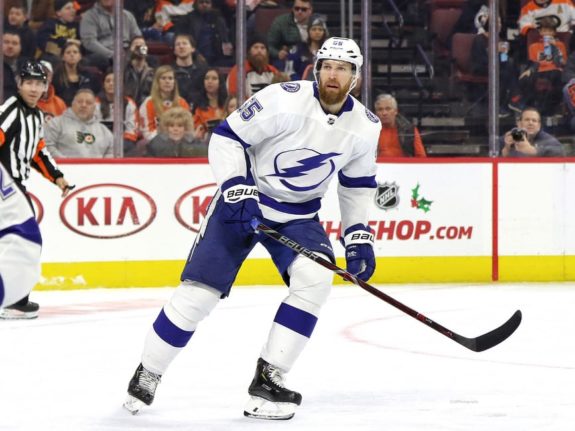
Ottawa acquired seven draft picks and dealt six players during the week of the 2019-20 trade deadline, and could opt to do something similar this year. More teams than usual figure to be buyers than sellers if there is less separation in the standings leading up to the deadline (which is extremely likely). The Senators could move some veterans to make room for their excellent crop of young prospects to get more ice time.
The timing of this route might make more sense than it would to rush some prospects who haven’t played competitive hockey since March into key roles at the NHL level right away.
Leaving Their Options Open
The Senators are straddling the line between prioritizing the future and trying to win now. It would be fair to categorize Dorion’s offseason approach as aggressive, but he hasn’t overextended himself, either.
All of Ottawa’s key pieces are still in place, and their cap situation remains one of the best in the league. While there isn’t a mandate in place to win right away, the expectations are certainly higher than they’ve been in years.
By accumulating competent and reliable players signed to movable deals, Dorion has hedged his bets on the Senators’ ability to compete in 2020-21. Regardless of where they finish in the standings this season, Ottawa is positioned to take another step forward.